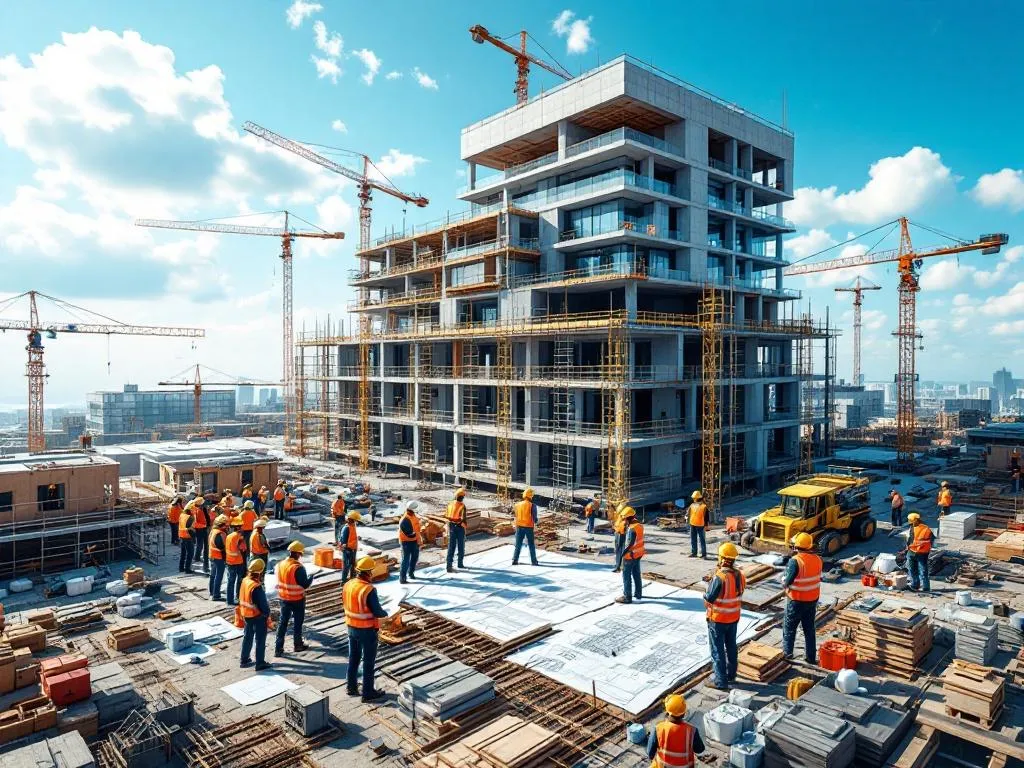
Building Success: Unveiling the Intricacies of Modern Construction Services
In the realm of modern industry, construction services are the backbone of infrastructure and real estate development. As societies continue to evolve, the need for advanced, efficient, and sustainable construction services escalates. The construction industry is a complex entity, with a multitude of factors contributing to the successful execution of projects. From savvy project management to the integration of cutting-edge technology, maintaining stringent safety measures, and upholding sustainability practices, the landscape of construction services is continuously transforming.
Project management is a vital player in the successful execution of construction services. It involves planning, coordinating, and executing a construction project, whether it is residential, commercial, or industrial, from its inception to its completion. Effective project management in construction ensures that projects are completed within the proposed budget and time frame, without compromising on quality. It also ensures that all the involved parties architects, engineers, laborers, and stakeholders are working in harmony towards a shared goal.
A significant part of project management in construction involves risk management. Every construction project invites a certain degree of risk, whether it is a delay in the supply of materials, sudden market fluctuations, or unforeseen environmental conditions. Effective risk management involves identifying potential risks, assessing their impact, and developing contingency plans to mitigate them.
Technology has left no sector untouched, and construction services are no exception. The integration of technology in construction services has revolutionized the way construction projects are executed. From 3D architectural modeling and Building Information Modeling (BIM) to drone surveillance and augmented reality, technology has redefined the approach towards construction.
BIM, for instance, allows construction teams to create and manage digital representations of a construction's physical and functional characteristics. This helps in coordinating the various aspects of a project, reducing errors and inefficiencies, and enabling a smoother workflow. On the other hand, drones equipped with cameras are used for site surveys and inspections, providing valuable data while reducing the time, cost, and risks associated with manual inspections.
Safety is paramount in the construction industry. Hence, the adoption of comprehensive safety measures is integral to construction services. These measures not only ensure the physical safety of the workers but also help in preventing property damage and legal complications. Safety measures in construction include wearing appropriate personal protective equipment, adhering to safety protocols while operating heavy machinery, and conducting regular safety training and drills. Moreover, with technology's aid, safety in construction has been further enhanced. For instance, wearable technology like smart helmets and vests can monitor workers' health, while software applications can streamline safety audits and inspections.
Sustainability is another key aspect that modern construction services are focusing on. With increasing awareness about environmental concerns, the construction industry is making concerted efforts to reduce its carbon footprint. Sustainable construction practices involve using environmentally friendly materials, optimizing energy efficiency, and minimizing waste. For instance, the use of recycled materials and renewable energy sources in construction projects is becoming increasingly common.
Furthermore, green building certifications like LEED (Leadership in Energy and Environmental Design) are encouraging the construction industry to adopt more sustainable practices. These certifications not only provide a benchmark for sustainability but also offer various benefits, including cost savings in the long run, improved public image, and potential tax incentives.
In conclusion, modern construction services are not just about constructing structures; they are about creating value. By employing efficient project management, integrating advanced technology, implementing rigorous safety measures, and embracing sustainability, construction services are driving the future of infrastructure and real estate development. These elements collectively ensure that the projects are not only completed successfully but also contribute positively towards economic growth, societal wellbeing, and environmental conservation.
As the construction industry continues to evolve, it is expected to witness further advancements and innovations, making construction services more efficient, safer, and sustainable. Therefore, whether you are a project owner, a construction professional, or an industry enthusiast, staying abreast of the latest trends and practices in construction services can offer valuable insights and opportunities.
